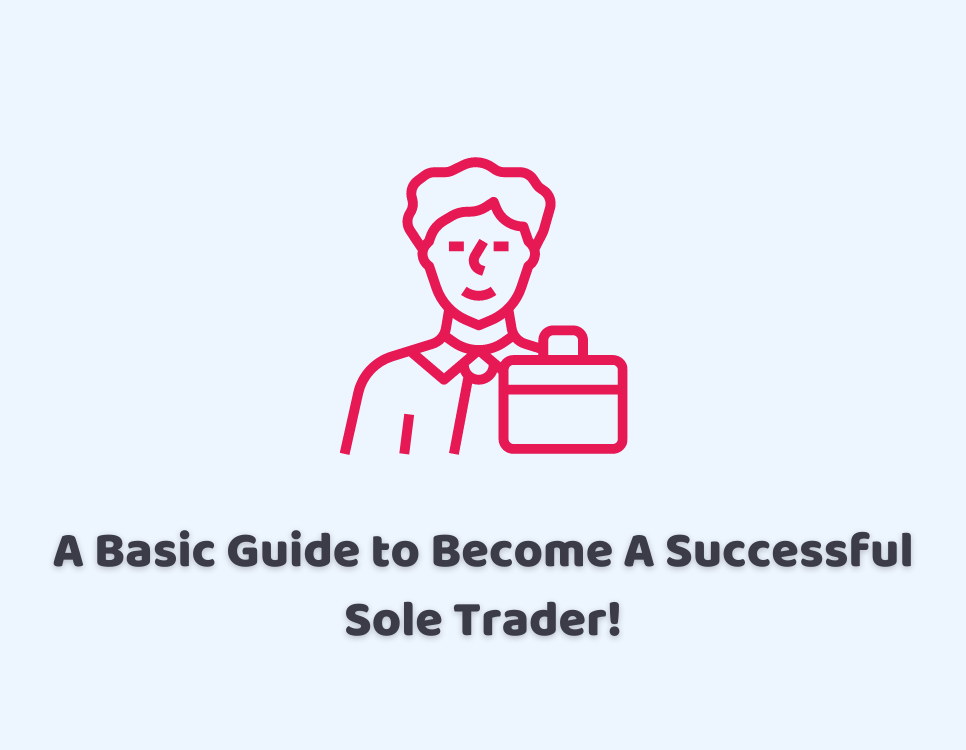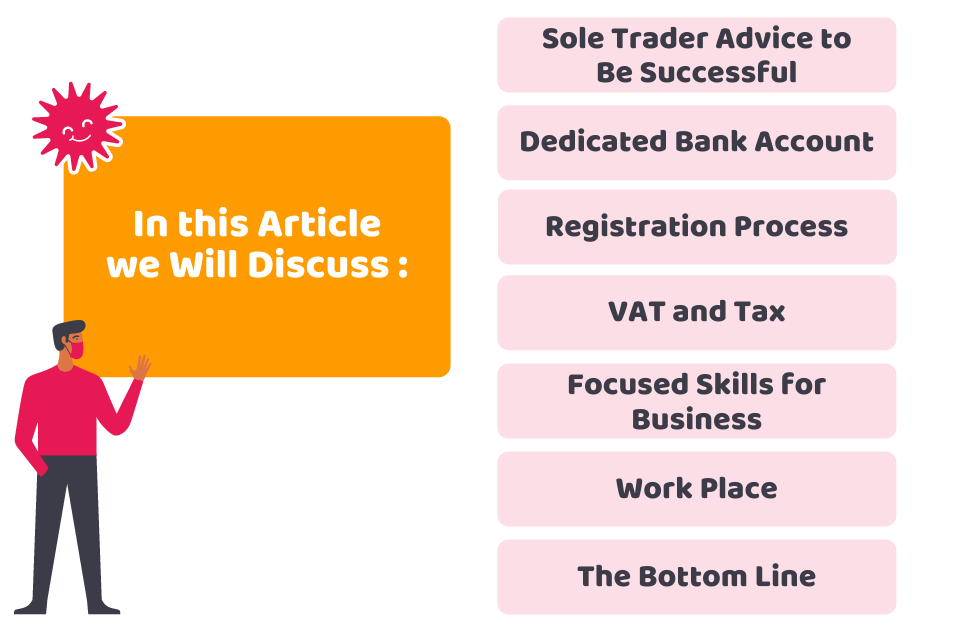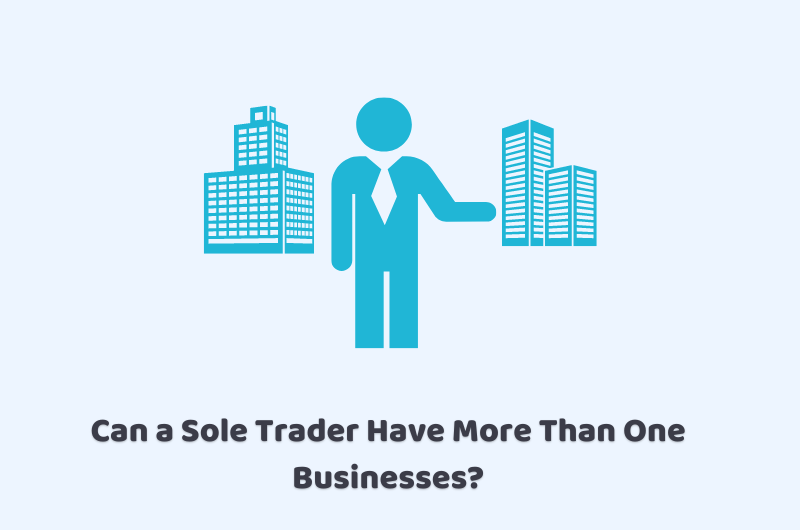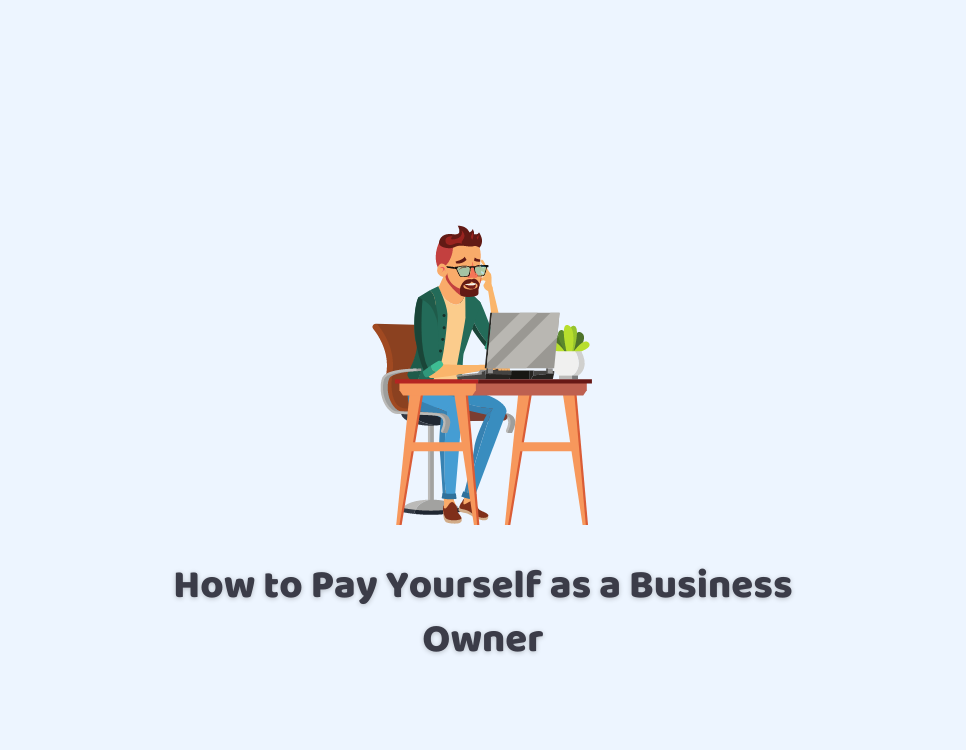
03/12/2021Sole Proprietorship , Sole Trader , VAT
A sole trader is a person who is self-employed and owns a business. According to research, about 60% of UK businesses are sole traders. This business structure is popular because of the simple ways to get into trading as well as the paperwork is minimal. However, sole trader advice by professionals will always be helpful before you plan to begin.
By now, you must be wondering that if it is the right option for you to opt for sole trading. Maybe you are already into working as a sole trader but look for new ways that can push your business toward success. This article is designed to provide the best and easiest tips to make your trading history a success story.
Before we delve deep into the discussion further, we need to have a look at the focused points of discussion in this article. This includes the following:

- Sole Trader Advice to Be Successful
- Dedicated Bank Account
- Registration Process
- VAT and Tax
- Focused Skills for Business
- Work Place
- The Bottom Line
Speak to one of our qualified accountants? Give us a call on 020 8686 8876 or request a callback.
Sole Trader Advice to Be Successful:
To be ensured that you want to be a sole trader, it is important that you gather enough information based on the drawbacks and advantages of becoming the one. The advantages that come with this structure cannot be denied. Like:
- Business control all by yourself
- Hire people that suits you and the work needs with your own choice.
- The greater degree of privacy factor about your business
- Pay tax on your benefits and keep the rest
- The business can be closed in an easy way than is the case in a limited company.
- You only have to clear your debts, gather the money and notify HMRC about the business closure.
Moreover, there are several drawbacks that are needed to be considered before taking the plunge in sole trading, this will further help to make the right decision. The freedom and independence that come with working as a sole trader are the prominent factors to the tendency increasing for this. Below are certain tips discussed to be successful.
Dedicated Bank Account:
Many people seek to have a dedicated account to fulfil the needs of the business finances. Maintaining a separate account for business finances is a better idea to be clear about your business and money. This will allow you to have a clear view of your income and expenses.
Registration Process:
It is very important to get yourself registered as a self-employed person with HMRC once you start trading. This will help to declare the status. The year in which you started working as a sole trader, you can register by 5th October after the tax year has ended. Late registration might cause penalities.
VAT and Tax:
As HMRC explains, a sole trader has to pay self-assessment tax returns every year and for that, it is a must to keep a track of your income in a fair manner. This does not matter if the business has yet started to make profits or not. On a tax return, the since and business expenses are declared as well.
Moreover, you have to register for VAT if your annual turnover goes above £85,000.
Focused Skills for Business:
In the process of becoming a business owner, things you are dealing with at the same moment become overwhelming for you. The development of your business skills is equally important.
The business owner must take part in the conferences, courses and event shows to be updated. By having a command of professional skills, you can do the following:
- Find new clients easily
- Be updated about the market demands and changes
- Process different skills as a professional
Work Place:
The dream of becoming your own boss and going for self-employment is to seek the balance in professional work life. It comes with several advantages but the factor of being lonely is when you don’t have enough company in the surroundings for the interaction.
Working from home means there are more chances of being distracted as well. The factor of productivity goes low because of the house chores interruption. It is here suggested that the workplace from your home should be a well-managed room or side that can easily separate your mind from your personal life.
Some other benefits that choosing a better workplace will bring include the following:
- Discipline
- Workday and dress properly before you enter into your workplace
- Enter in professional work mode
- Choose your suitable working hours
- Enjoy your lunch breaks
The Bottom Line:
Now that you have developed a better understanding of the Sole Trader Advice, we can sum up the discussion by saying that becoming a sole trader comes with prominent and undeniable advantages as discussed in the article but being self-disciplined will help you achieve success as a sole trader.
We hope this article helped to develop a better understanding.
Therefore, look no further other than CruseBurke. We offer comprehensive accounting and taxation services to Sole Traders only at £25 per month. You may create your own unique package here.
Disclaimer: This article intends to provide general information based on Sole Trader Advice to be successful and relevant details.



